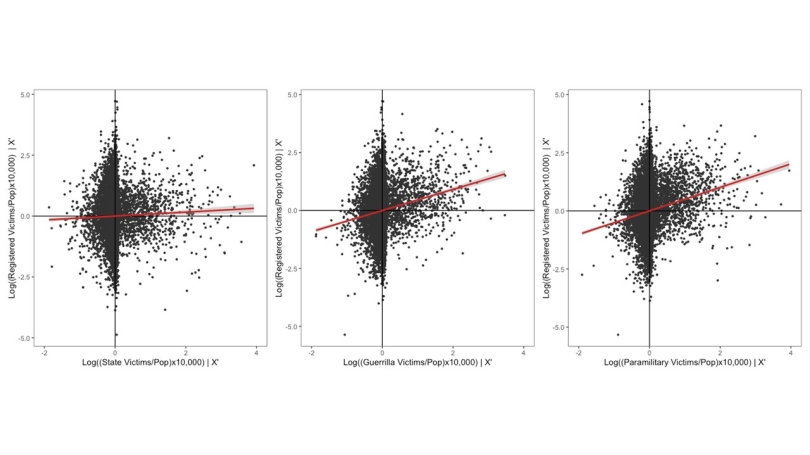Assistant Professor of Quantitative Social Science, Elsa Voytas, recently published a co-authored article with Ben Crisman, a graduate student at Princeton University, "State violence and participation in transitional justice: Evidence from Colombia," in Journal of Peace Research. Professor Voytas who was appointed in QSS as of this past July, has taught QSS 15 Introduction to Data Analysis this fall quarter and will be teaching QSS 30.18 Quantitative Approaches to Peace and Justice in Winter 2024.
The abstract of her article is as follows:
Abstract:
Can the legacy of state violence undermine participation in transitional justice services designed to consolidate peace after conflict? We argue that, in the aftermath of armed fighting, state-perpetrated violence leads to reduced uptake of government reconciliation policies. We leverage spatial and temporal variation in levels of civilian victimization by perpetrator and find that, in contrast to violence committed by non-state groups, violence carried out by state forces against civilians is associated with lower levels of enlistment in Colombia's state-run victims' registry. We replicate this relationship using survey data and present evidence linking victimization by the state to lower levels of trust in the government overall. Together, our analyses demonstrate that disaggregating the identity of armed actors can provide significant theoretical and empirical advances in our understanding of peacemaking and post-conflict reconstruction. In the Colombian case, the legacy of state violence leads to the systematic exclusion of certain types of victims from transitional justice and undermines trust in the institutions responsible for building durable pathways to peace. Consequently, our findings have implications for the design of transitional justice policies, the study of the legacies of conflict on political and social outcomes, and processes of post-conflict peacebuilding.
